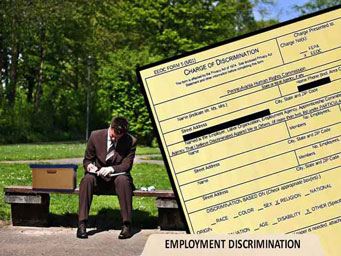Employment Discrimination
Employment Discrimination: Being treated unfairly at work may, or may not, present a claim against your employer. Generally, an employee stands as part of a protected class or engaged in protected activity to have a claim. It’s also possible that other incidents give rise to claims as well (such as claims for violations of public policy.) Some examples of protected classes include those outlined under Title VII (which bars job discrimination based on race, color, religion, sex and national origin), the Age Discrimination in Employment Act (ADEA), and the Americans with Disabilities Act (ADA).
Additional protections exist for employees and may be relevant to you. For example, someone engaging in protected activity enjoys the same protections as above; this may occur in a case where individuals assert their, or another individual’s rights. Employees should be free from retaliation in such instances as well. In addition, an employer may not engage in unfair treatment based on the employer’s perception of a protected class or activity.
Some Examples of Federal Employment Discrimination Laws:
- Title VII of the Civil Rights Act of 1964 (Title VII);
- the Equal Pay Act of 1963 (EPA);
- the Age Discrimination in Employment Act of 1967 (ADEA);
- Title I and Title V of the Americans with Disabilities Act of 1990, as amended (ADA);
- Title II of the Genetic Information Nondiscrimination Act of 2008 (GINA);
- the Civil Rights Act of 1991.
Other protections or claims involve state or federal statutes. These range from state anti-discrimination laws (PHRA), to medical leave (FMLA.) They also include matters of overtime pay (FLSA) to wage payment and collection laws.
Importantly, the mechanics of how these protections exist are detailed and complex. An employment law attorney can gauge your situation and counsel accordingly.
Date:
August 18, 2017
Category:
Attorney Services
